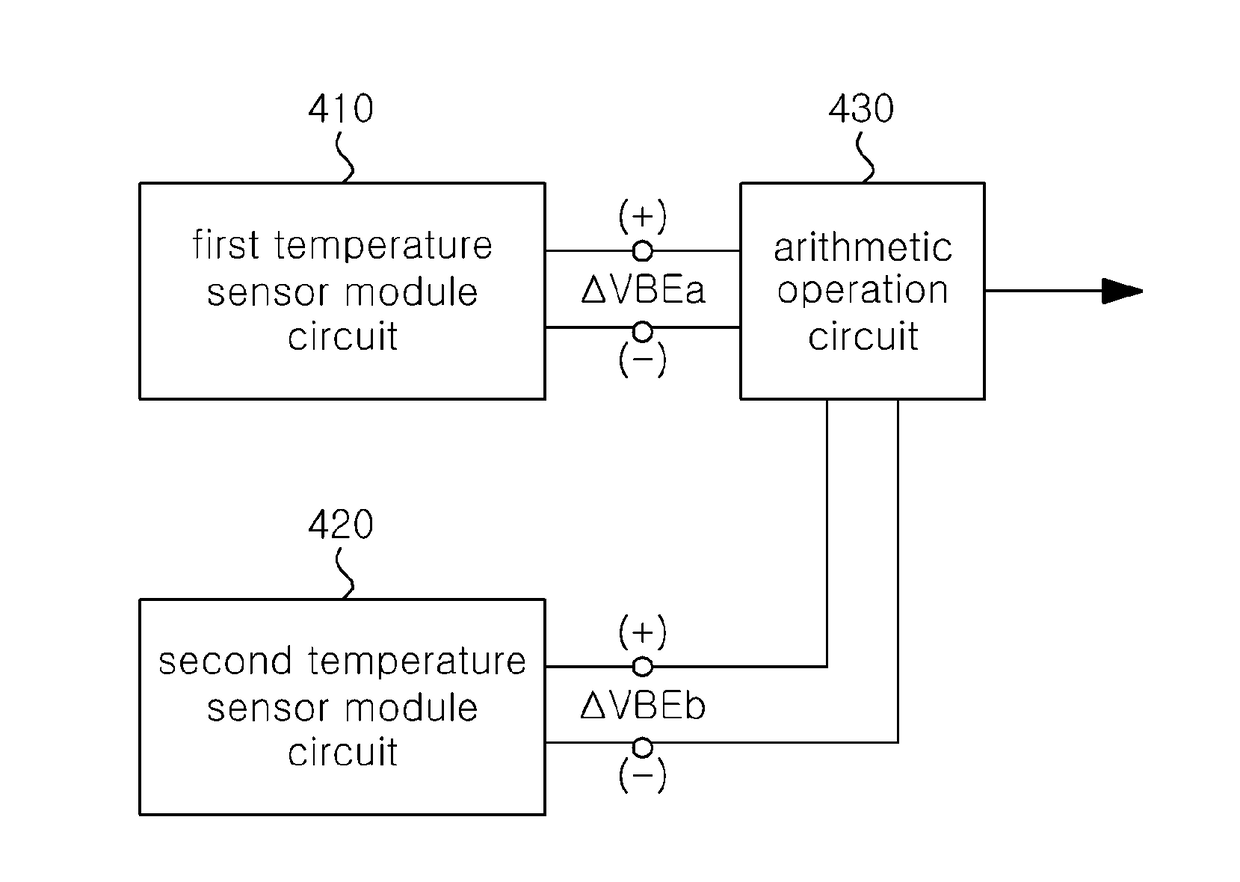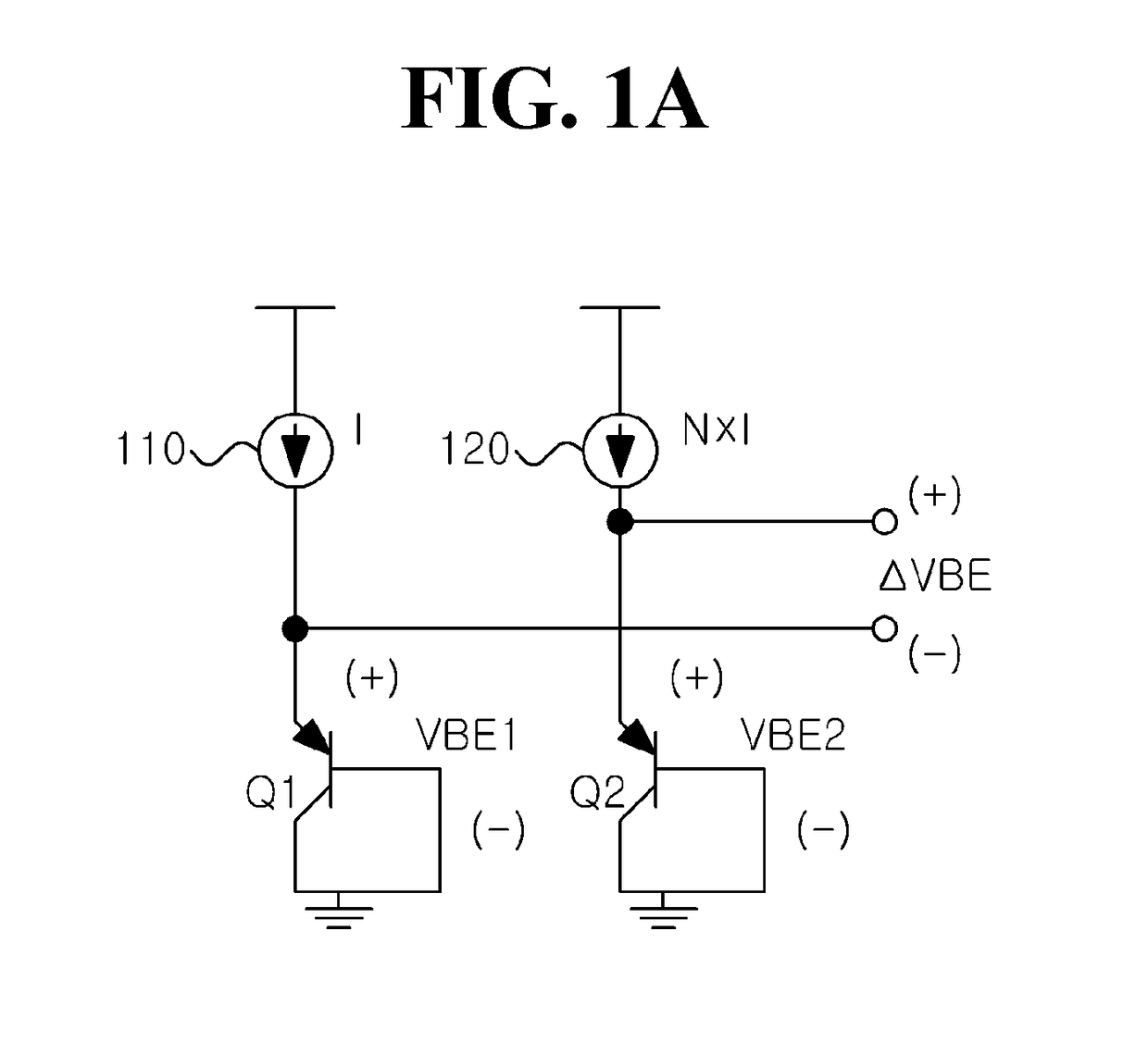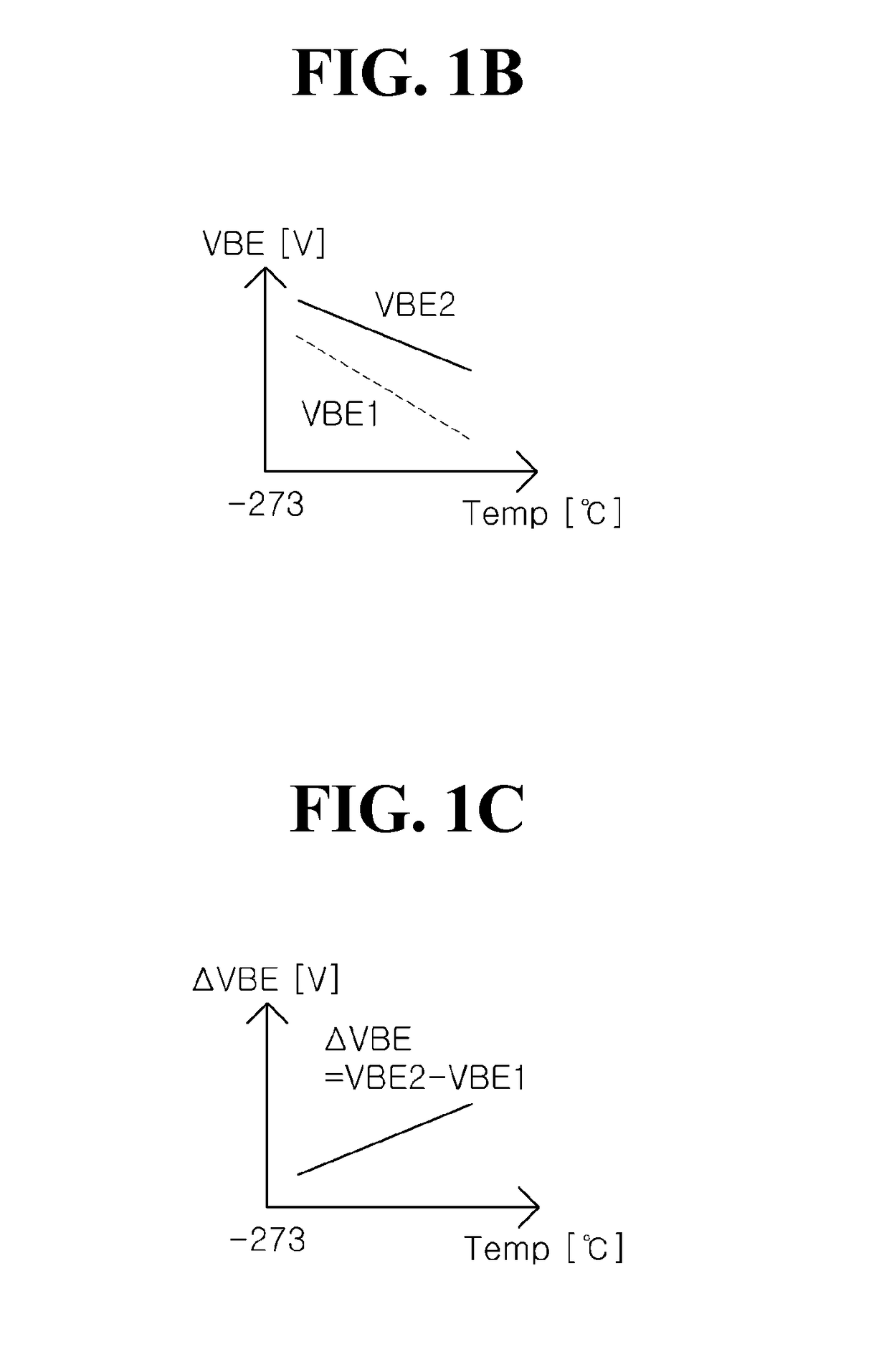Temperature sensor circuit capable of compensating for nonlinear components and compensation method for temperature sensor circuit
a temperature sensor and nonlinear component technology, applied in the direction of instruments, heat measurement, measurement devices, etc., can solve the problems of difficult to obtain accurate compensation signals from most of these conventional technologies, significantly difficult to design integrated circuits (ics) that can maintain consistent functionality across a wide operating temperature range, and the design of automotive ics. achieve the effect of high accuracy
- Summary
- Abstract
- Description
- Claims
- Application Information
AI Technical Summary
Benefits of technology
Problems solved by technology
Method used
Image
Examples
Embodiment Construction
[0044]Embodiments of the present invention will be described in detail with reference to the accompanying drawings. In the following description of the present invention, detailed descriptions of related well-known components or functions that may unnecessarily make the gist of the present invention obscure will be omitted.
[0045]The prevent invention is not limited to the embodiments. Throughout the accompanying drawings, the same reference symbols are assigned to the same components.
[0046]FIGS. 1A, 1B, and 1C are a circuit diagram and characteristic graphs of a temperature sensor module circuit according to an embodiment of the present invention.
[0047]The temperature sensor module circuit using PNP-type bipolar transistors BJTs, shown in FIG. 1, uses two current sources 110 and 120 and two transistors Q1 and Q2. The current sources 110 and 120 are connected to respective emitter terminals of the transistors Q1 and Q2, and the base and collector terminals of the transistors Q1 and Q...
PUM
| Property | Measurement | Unit |
|---|---|---|
| current | aaaaa | aaaaa |
| temperature | aaaaa | aaaaa |
| current level | aaaaa | aaaaa |
Abstract
Description
Claims
Application Information
 Login to View More
Login to View More - R&D
- Intellectual Property
- Life Sciences
- Materials
- Tech Scout
- Unparalleled Data Quality
- Higher Quality Content
- 60% Fewer Hallucinations
Browse by: Latest US Patents, China's latest patents, Technical Efficacy Thesaurus, Application Domain, Technology Topic, Popular Technical Reports.
© 2025 PatSnap. All rights reserved.Legal|Privacy policy|Modern Slavery Act Transparency Statement|Sitemap|About US| Contact US: help@patsnap.com



